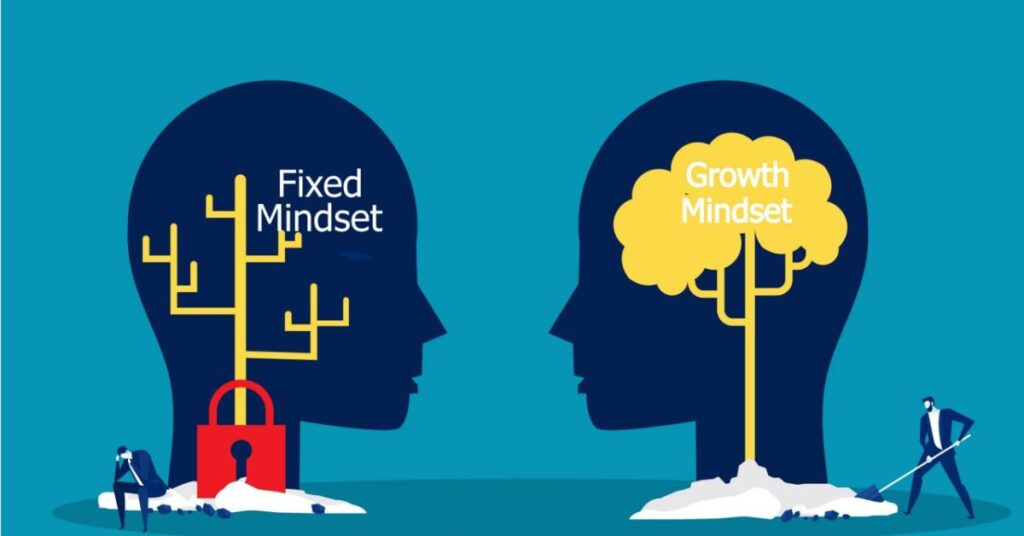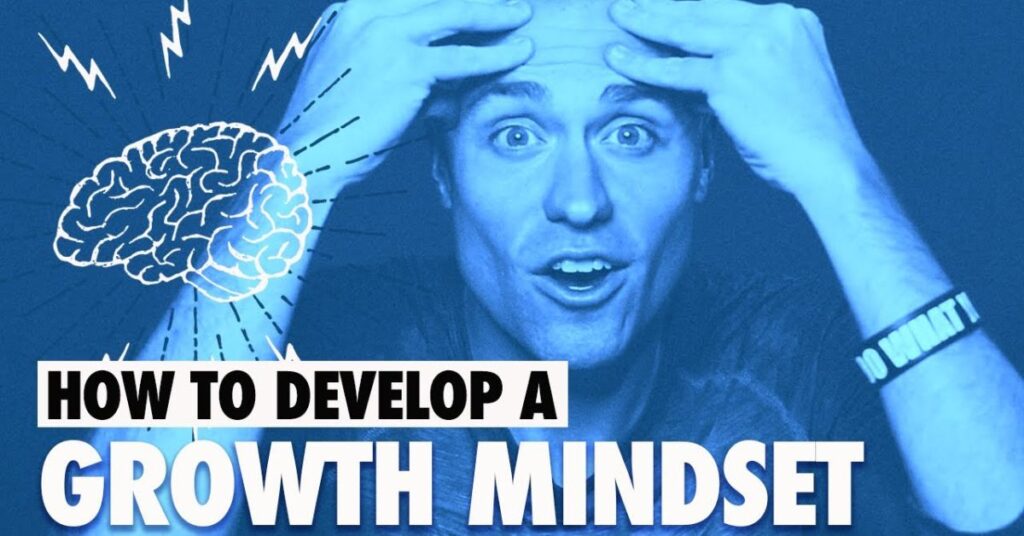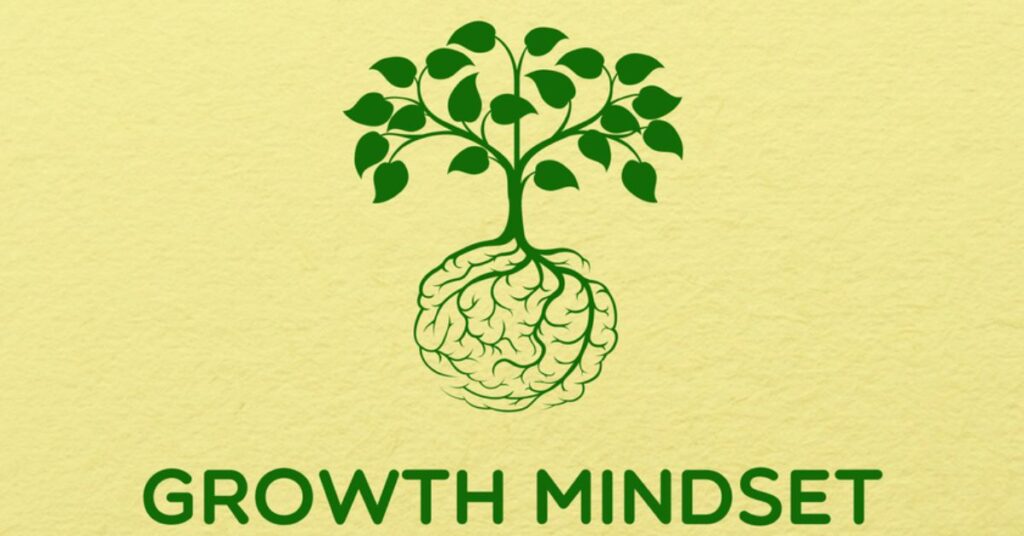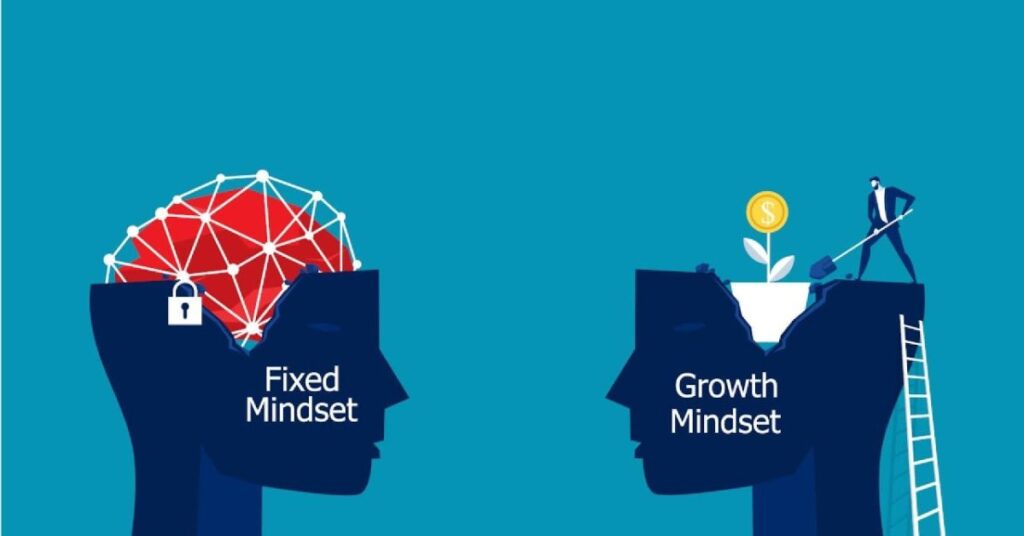A growth mindset is the belief that intelligence and abilities can be developed with time and effort. This idea was introduced by Professor Carol Dweck. Unlike a fixed mindset, which assumes intelligence and abilities are static and unchangeable, a growth mindset embraces the potential for personal growth.
People with a growth mindset view challenges as learning opportunities rather than roadblocks to growth. They believe that with effort and practice, they can improve and reach their goals.Understanding a growth mindset involves recognizing the power of self-awareness. People with this mindset see mistakes as a natural part of the learning process.
They are more likely to take on difficult tasks and persevere through setbacks. This perspective on failure helps them develop resilience and adaptability, crucial traits in a competitive place. In contrast, those with a fixed mindset might avoid challenges and give up easily, seeing failure as a reflection of their unchangeable abilities.
Why Is Cultivating a Growth Mindset Important?

Cultivating a growth mindset is essential for both personal growth and professional development. It helps individuals steadily reach new heights by embracing challenges and learning from them. This mindset fosters increased motivation, encouraging people to put in the effort and dedication needed to improve their skills. By seeing intelligence development as a journey, they become more open to constructive feedback and continuous learning.
In the workplace, a growth mindset can lead to higher levels of innovation and collaboration. Growth-mindset companies encourage employees to take risks, view mistakes as learning experiences, and work towards unlimited potential. This environment not only boosts employee engagement but also drives business and leadership benefits. For example, a study in the Harvard Business Review found that companies promoting a growth mindset had more innovative employees and were more likely to see higher levels of success.
Can a Growth Mindset Be Developed?
Yes, a growth mindset can be developed through intentional effort and strategies. Neuroplasticity, the brain’s ability to reorganize itself by forming new connections, supports the idea that we can change our mindset. Research shows that with conscious shift and practice, individuals can move from a fixed mindset to a growth mindset. This involves recognizing fixed mindset traps and actively working to shift thinking patterns.
Myths about innate abilities often hinder intelligence development. It’s important to understand that talents can be nurtured through hard work and learning strategies. Studies, such as those published in the Brain Sciences journal, provide evidence that intelligence and abilities are not inherently unmalleable. Instead, they can be enhanced through effort and perseverance. This belief can transform how we approach challenges and setbacks, viewing them as opportunities to learn rather than insurmountable obstacles.
How to Develop a Growth Mindset: Step by Step

Step 1: Self-Awareness and Recognizing Your Current Mindset
Developing a growth mindset begins with self-awareness. Recognize when you’re thinking with a fixed mindset. Are you avoiding challenges or feeling threatened by the success of others? Reflect on these thoughts and understand that they stem from a belief in unchangeable abilities. Writing down these observations can help in identifying patterns and making a conscious shift towards a growth mindset.
Step 2: Embracing Challenges and Learning from Failures
To foster a growth mindset, welcome challenges and see them as chances to grow. When faced with difficulties, remind yourself that effort and practice are key to improvement. Embrace failure as a part of the learning process. For instance, if you struggle with a task, view it as a learning opportunity rather than a defeat. This shift in attitude can significantly impact your ability to overcome obstacles.
Step 3: Focusing on the Process, Not Just the Outcome
Instead of fixating on results, focus on the effort and strategies you employ. Celebrate small wins and progress. This helps maintain motivation and encourages a love for learning. Understanding that effort and perseverance lead to improvement can keep you committed to your goals.
Step 4: Seeking Feedback and Learning from Others
Ask for constructive feedback and learn from those around you. Feedback helps identify areas for improvement and offers new perspectives. Whether it’s from mentors, peers, or supervisors, meaningful feedback is crucial for continuous learning. Engaging with others also provides opportunities to see different approaches to problem solving and growth.
Step 5: Cultivating a Love for Learning and Continuous Improvement
Develop a passion for learning by exploring new activities and subjects. Set realistic goals that challenge you but are achievable. This helps maintain a balance between comfort zone and growth. Regularly assess your progress and adjust your strategies as needed. Remember, the journey of self-improvement is ongoing.
You may read this Article: Stay Fit and Healthy: The Ultimate Guide to Living Your Best Life
Real-Life Applications and Examples
In education, fostering a growth mindset can lead to higher student test scores and academic achievement. Teachers can encourage students by praising their effort and perseverance rather than their innate abilities. This approach helps students view challenges as opportunities to learn and develop coping skills.
In the workplace, growth mindset principles can enhance career reimagination and leadership qualities. Companies like Microsoft and Google have integrated these ideas into their culture, leading to more innovative and collaborative teams. Employees in such environments are more likely to embrace new challenges, seek feedback, and continuously improve their skills.
Comparison of Fixed Mindset and Growth Mindset
| Aspect | Fixed Mindset | Growth Mindset |
| View of Intelligence | Static, unchangeable | Developable with effort |
| Response to Failure | Sees it as a limit | Sees it as a learning opportunity |
| Approach to Challenges | Avoids | Embraces and seeks |
| Effort | Views as fruitless | Views as path to mastery |
| Feedback | Ignores or takes personally | Uses to improve |
| Success of Others | Feels threatened | Feels inspired |
Embrace the Power of a Growth Mindset: Your Journey Starts Now

Embracing a growth mindset starts with small, deliberate changes. Reflect on your self-awareness and identify areas where a fixed mindset might be holding you back. Make a plan to tackle these areas with positive actions and patience with growth. Remember, developing a growth mindset is a journey that involves continuous learning and effort.
Set realistic goals and break them down into smaller steps. Celebrate your progress along the way. Talk to others about their experiences and learn from their stories. Engaging with a community can provide support and motivation. Remember, the key to success lies in believing in your ability to grow and improve.
FAQ’s
How do I train myself to have a growth mindset?
Train yourself by becoming aware of negative thoughts, embracing challenges, and viewing failure as a chance to learn and grow.
What are the 4 steps to developing a growth mindset?
The 4 steps are recognizing fixed mindset thoughts, embracing challenges, learning from failure, and focusing on effort over outcomes.
How do you increase your growth mindset?
You can increase your growth mindset by actively seeking new challenges, embracing feedback, focusing on continuous improvement, and celebrating even small wins as signs of progress.
How is a growth mindset developed?
A growth mindset is developed by consistently shifting your thinking from believing abilities are fixed to seeing them as qualities that can grow with effort and learning. This shift happens over time with intentional practice.
Is growth mindset a skill?
Yes, a growth mindset is a skill that can be developed through regular practice, patience, and embracing new challenges and learning opportunities.
Conclusion
Developing a growth mindset can significantly impact your life, both personally and professionally. By embracing challenges and viewing them as learning opportunities, you’ll be more adaptable, resilient, and motivated to improve. The journey of cultivating this mindset requires patience and consistent effort and practice, but the rewards are invaluable. As you shift from a fixed mindset to a growth mindset, you’ll find yourself more willing to take risks, accept feedback, and view failures as stepping stones rather than roadblocks.
In the end, adopting a growth mindset is a powerful tool for personal development. It helps you break free from self-limiting beliefs and unlock your unlimited potential. The mindset you develop today will shape your success tomorrow.







